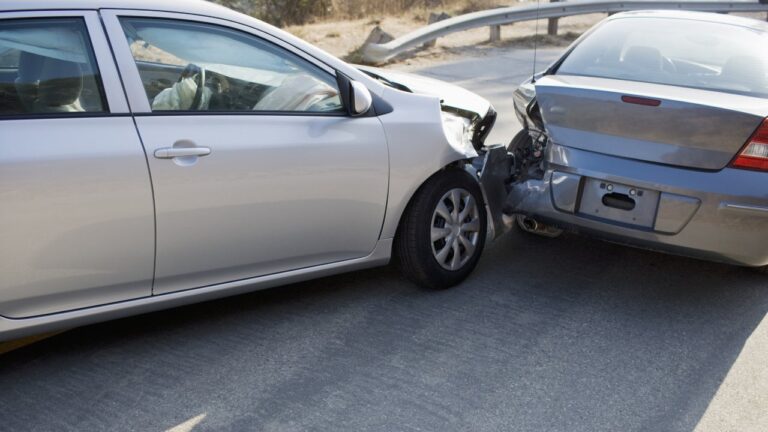Financial Protection Against Accidents
Financial Protection Against Accidents; Accidents are an unfortunate reality of life, often striking without warning and causing not only physical harm but also financial distress. Whether it’s a car crash, a workplace injury, or a sudden illness, accidents can have far-reaching consequences, including medical bills, loss of income, and even long-term disability. In the face of such uncertainty, financial protection becomes paramount. In this comprehensive guide, we will explore various strategies and tools available to safeguard your financial well-being against accidents, ensuring peace of mind for you and your loved ones.
Understanding the Risks in Financial Protection Against Accidents
Before delving into specific measures for financial protection, it’s crucial to understand the risks associated with accidents. These risks can be categorized into several key areas:
- Health-related expenses: Medical bills resulting from accidents can quickly escalate, especially in cases of severe injuries or prolonged treatment.
- Loss of income: Accidents may render individuals unable to work temporarily or permanently, leading to a loss of income and potential financial instability.
- Property damage: Accidents such as car collisions or natural disasters can damage property, necessitating costly repairs or replacements.
- Legal liabilities: In some cases, individuals may be held legally responsible for accidents, resulting in legal expenses, settlements, or judgments against them.
Now that we’ve identified the risks, let’s explore the strategies for mitigating them.
Emergency Savings Fund in Financial Protection Against Accidents
One of the foundational pillars of financial protection is an emergency savings fund. This fund serves as a financial cushion to cover unexpected expenses arising from accidents or other emergencies. Financial experts typically recommend setting aside three to six months’ worth of living expenses in an easily accessible savings account. This fund can help cover immediate costs such as medical bills or household expenses if you’re unable to work due to an accident.
Insurance Coverage in Financial Protection Against Accidents
Insurance plays a critical role in protecting against financial losses stemming from accidents. Here are some key types of insurance to consider:
- Health Insurance: A comprehensive health insurance policy can help cover medical expenses resulting from accidents, including hospitalization, surgeries, medications, and rehabilitation services.
- Disability Insurance: Disability insurance provides income replacement if you’re unable to work due to a disability caused by an accident or illness. It ensures that you continue to receive a portion of your income, helping you meet your financial obligations.
- Auto Insurance: If you own a vehicle, auto insurance is essential for protecting against financial losses resulting from accidents, theft, or damage to your vehicle or others’ property. Liability coverage is particularly important, as it protects you against legal liabilities arising from accidents where you’re at fault.
- Homeowners or Renters Insurance: These policies provide coverage for damage to your home or belongings caused by accidents such as fires, floods, or theft. They also offer liability protection in case someone is injured on your property.
- Umbrella Insurance: Umbrella insurance offers an extra layer of liability protection beyond the limits of your existing insurance policies. It can be particularly beneficial in situations where you face significant legal liabilities resulting from accidents.
Legal Protections in Financial Protection Against Accidents
In addition to insurance, legal protections can help safeguard your financial interests in the event of accidents:
- Estate Planning: Establishing a comprehensive estate plan, including a will, trust, and power of attorney, can ensure that your assets are distributed according to your wishes in the event of your incapacitation or death due to an accident.
- Advance Directives: Advance directives such as a living will or healthcare proxy allow you to specify your medical preferences and designate a trusted individual to make healthcare decisions on your behalf if you’re unable to do so.
- Legal Counsel: In cases where you’re involved in accidents resulting in legal disputes or claims, seeking legal counsel can help protect your rights and interests. An experienced attorney can provide guidance on navigating complex legal processes and negotiating fair settlements.
Investment in Safety Measures in Financial protection against accidents
Prevention is often the best form of protection against accidents. Investing in safety measures can help reduce the likelihood and severity of accidents, thereby minimizing potential financial losses. Whether it’s installing smoke detectors and fire extinguishers in your home, maintaining a safe driving record, or implementing workplace safety protocols, taking proactive steps to mitigate risks can ultimately save you from significant financial hardship.
Conclusion on Financial Protection Against Accidents
Accidents are an inevitable part of life, but with careful planning and proactive measures, you can minimize their impact on your financial well-being. By building an emergency savings fund, securing appropriate insurance coverage, implementing legal protections, and investing in safety measures, you can achieve greater peace of mind knowing that you’re prepared for whatever life throws your way. Remember, financial protection against accidents is not just about safeguarding your assets—it’s about safeguarding your future and ensuring financial security for yourself and your loved ones.





